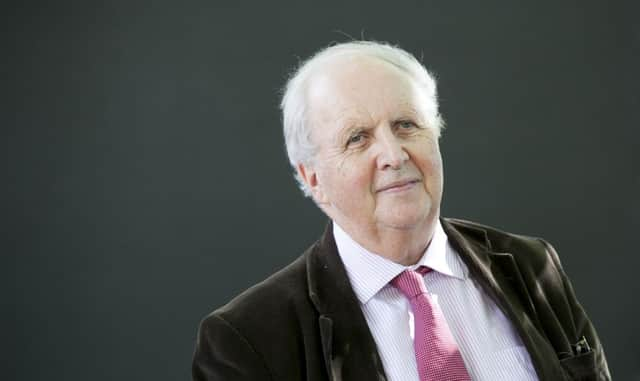McCall Smith is top of the leader board for productivity


This was, according to Iain Martin, the answer that came back when he asked why former Royal Bank of Scotland chief executive Fred Goodwin didn’t want to be interviewed by him about the mess he’d made of running the world’s biggest bank.
On the stage with him was his interviewer, RBS’s current chief executive, Ross McEwan (2016 salary: £3.8 million). He at least had read both of Martin’s books – his 2013 account of the RBS debacle, and last year’s Crash Bank Wallop, about Big Bang and the deregulation of the City.
Advertisement
Hide AdAdvertisement
Hide AdMartin was good on the optimism of Edinburgh in the early Noughties – the soaraway bank profits, the excitement of the new Parliament, even the arrival of Harvey Nicks. Boom and bust were no more, Chancellor Gordon Brown had assured us, blithely disregarding worries about RBS having more than 100 per cent of the UK’s GDP on its balance sheet, so preoccupied was he with trying to replace Blair.
Martin, though, can be an optimist, too. The City will, he insists, get through Brexit for all the obvious reasons: stability, English language, rule of law, time zones, lack of corruption, and experience. “There’s no way Americans are going to want to give up everything that draws them to work in London and go to Frankfurt.” Really? Diplomatically, his interviewer – who has just moved 150 of his staff to Amsterdam – said nothing.
Seventy years ago this month, an even greater cataclysm struck Dilip Hiro’s homeland. Yet the partition of India – 750,000 deaths, 12 million people fleeing their homes – is, he said, impossible to comprehend without looking back at least as far as the First World War when the defeat of Turkey left India as the country with the world’s largest Muslim population and reinvigorated demands to establish a caliphate on the subcontinent.
Hiro was even-handed in apportioning blame: on the Congress Party for failing to take account of Muslim sensitivities, on Pakistan’s founding father Jinnah for cynically playing the religious card. Although culturally and economically, there are reasons for hope about coexistence, politically and militarily the pessimists win out.
In case you thought North Korea is all we need to worry about, consider this. The Pakistani military, which gets 25 per cent of the country’s budget, has tactical nuclear weapons, with the authority to use them vested in their front-line commanders.